Our Ingredients
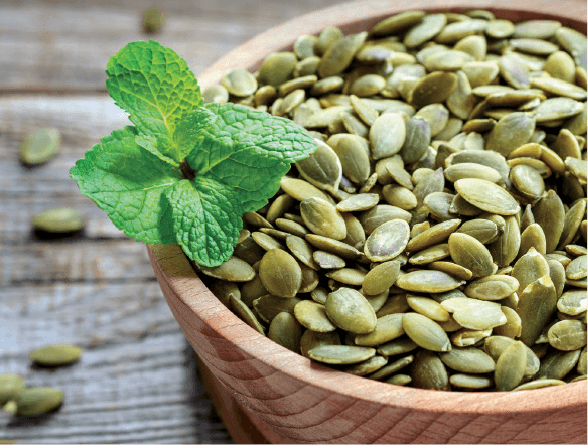
Understand why our ingredients make Nutriment the number one raw dog food & raw cat food choice in the market
We use several sources of proteins from fresh meats, seeds and plants to give a wider range of amino acids and nutrients. Over-consuming any single protein is not good and poses a risk of developing an allergy over time. If your pet has been eating the same food every day for months or years, there’s a good chance he or she has developed an allergy to it. The protein structure in raw meat is different from that in a cooked or processed dog/cat food, so in some cases, dogs and cats with known allergies to these may find that they are fine on a raw diet.
Contrary to what you’ve probably been led to believe, dogs and cats need diversity in their diets just like humans do.
The chickens we use are bred on selected farms in Norfolk & Suffolk. They are reared in houses that have an enriched environment, which means they are reared on chopped straw or wood shavings with straw bales placed around the house to encourage their natural behaviour patterns. From one day old the birds are fed on a formulated balanced diet, primarily made up of cereals grown on local farms. The diet is enhanced with natural ingredients such as salmon oil, which is high in Omega 3. We only use chicken after it has been fully dressed for the market, containing a high meat content to bone ratio.
-
Estimated Glycaemic Load: 0 per 100g
We buy from a family-owned business in Hertfordshire, which has been operating for over 50 years and rears turkeys to the highest British standard. The farms are registered under the Quality British Turkey Assurance Scheme to ensure quality of life and health of the birds. Turkey is a good source of Niacin, Vitamin B6 and Phosphorus, and a very good source of Protein and Selenium. Dogs allergic to chicken are often fine with turkey. All our turkey has been fully dressed for the market, containing a high meat content to bone ratio.
-
Estimated Glycaemic Load: 0 per 100g
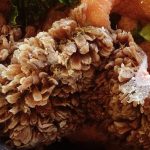
This is the stomach of a cow, which consists of four chambers – the rumen, reticulum, omasum and the abomasum. The food the animal eats (i.e. grass, hay) is swallowed un-chewed and passes into the rumen and reticulum where it is then regurgitated, chewed and mixed with saliva. It is then swallowed again, and passed through the reticulum and omasum in to the abomasum, where it is then further broken down by the gastric juices, amino acids and other digestive enzymes. These gastric juices and enzymes not only aid the animal in digestion, but also can aid your dog in digesting and efficiently utilizing his or her food.The amino acids are necessary for muscular development and the other gastric juices can assist in keeping teeth clean.Green tripe also contains Lactic Acid Bacteria, known as Lactobacillus Acidophilus, which is the main ingredient in probiotics. It is also low in phosphorus (0.13%) making it ideal for dogs with liver and kidney problems.
-
Lactic Acid Bacteria (Probiotics) – 290,000,000/100gm
-
Estimated Glycaemic Load: 0 per 100g
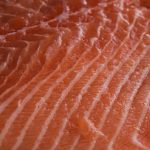
The protein in salmon is easy for dogs to digest and absorb, supplying amino acids and vital nutrients. Salmon’s main health benefit is Omega-3 fatty acids. Vitamins A, B and D as well as the minerals calcium, iron, phosphorus and selenium are also found in salmon. We use no heads, tails, fins or gut, but only the freshest quality salmon.
-
Total Omega-3 fatty acids 2506mg/100g
-
Total Omega-6 fatty acids 982mg/100g
-
Estimated Glycaemic Load: 0 per 100g
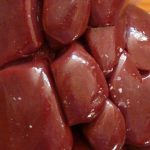
Kidney is part of the offal in our foods and a very good source of Vitamin A, Thiamin, Riboflavin, Niacin, Vitamin B6, Folate, Vitamin B12, Pantothenic Acid, Iron, Phosphorus, Copper and Selenium, and a good source of protein, Vitamin C and Zinc.
-
Vitamin B6 – 0.7mg/100g
-
Vitamin B12 – 27.5mcg/100g
-
Estimated Glycaemic Load: 0 per 100g
This is also part of the offal in our foods and an excellent source of protein, Thiamin, Vitamin A, Riboflavin, Niacin, Vitamin B6, Folate, Vitamin B12, Pantothenic Acid, Iron, Phosphorus, Zinc, Copper and Selenium.
-
Vitamin B12 – 102mcg/100g
-
Estimated Glycaemic Load: 3 per 100g
This offal meat is a very good source of Riboflavin, Niacin, Vitamin B12, Iron and Selenium, and is a good source of protein, Thiamin, Vitamin B6, Pantothenic Acid, Phosphorus and Copper.
-
Vitamin B6 – 0.7mg/100g
-
Vitamin B12 – 27.5mcg/100g
-
Estimated Glycaemic Load: 0 per 100g
Carrots are a very good source of dietary fibre, Potassium and Vitamins A, C and K, as well as being a good source of Thiamin, Niacin, Vitamin B6, Folate and Manganese.
-
Total Carbohydrates 9.6g per 100g
-
Dietary Fibre 3g per 100g
-
Estimated Glycaemic Load: 3 per 100g
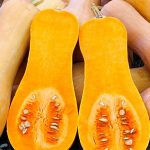
This is a great source of dietary fibre, Vitamin E, Thiamin, Niacin, Vitamin B6, Folate, Calcium and Magnesium, as well as being a source of Vitamins A and C, Potassium and Manganese.
-
Total Carbohydrates 12g per 100g
-
Dietary Fibre 2g per 100g
-
Estimated Glycaemic Load: 4 per 100g
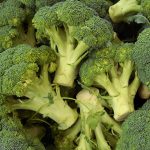
Broccoli is very high in Vitamins C and K, as well as being a very good source of dietary fibre, Vitamin B6, Folate, Potassium and Manganese. It is also a good source of Vitamin E, Thiamin, Riboflavin, Pantothenic Acid, Calcium, Iron, Magnesium, Phosphorus and Selenium.
- Total Carbohydrates 7g per 100g
- Dietary Fibre 2.6g per 100g
- Estimated Glycaemic Load: 3 per 100g
This is a good source of dietary fibre, protein, Thiamin, Riboflavin, Folate, Iron, Magnesium and Phosphorus, and is also an excellent source of Vitamins A, C, K and B6, Calcium, Copper and Potassium. Vitamin K is a fat-soluble vitamin, which is stored by lipocytes until used by the dog’s body. Feeding natural sources of Vitamin K helps speed up recovery after surgery or an injury, helps the body absorb Calcium for strong bone development, and helps prevent heart and bone disease including osteoporosis.
-
Total Carbohydrates 10g per 100g
-
Dietary Fibre 2g per 100g
-
Estimated Glycaemic Load: 4 per 100g
This is essential for skin and coat quality, cardiovascular/ heart health, immune response, cognitive/ brain function and joint function/ mobility. Research has proven that DHA from fish oils makes puppies more intelligent, easier to train and improves memory. It is also a great source of Omega 3 & 6 fatty acids.
-
Total Omega-3 fatty acids 35,311mg/100g
-
Total Omega-6 fatty acids 1543mg/100g
-
Estimated Glycaemic Load: 0 per 100g
50 percent of the fat content in coconut oil is a fat rarely found in nature called lauric acid, a medium-chain fatty acid and is one of these prized substances. When lauric acid is present in the body, it is converted into monolaurin, a monoglyceride compound which exhibits antiviral, antimicrobial, antiprotozoal and antifungal properties. It acts by disrupting the lipid membranes in organisms like fungus, bacteria and viruses, thus destroying them.
Believed to be one of the most nutrient-dense vegetables on the planet, and rich in minerals and natural salts. Dogs experience the same benefits from kelp as humans. It can aid in keeping digestive juices balanced, as well as provide efficient acidic levels, and its iodine and minerals are believed to strengthen the entire digestive system.
Kelp is a very good source of Vitamin K, Riboflavin, Folate, Calcium, Iron, Magnesium and Manganese and is also a good source of dietary fibre, Vitamin C, Pantothenic Acid, Zinc and Copper.
This is an incredible source of flavonoids, which are antioxidant compounds that help to fight degradation in all of the body’s systems. These astringent anthocyanins are found in the plant’s pigment, and unlike blueberries, where the majority of the beneficial pigment is contained in the skin, the bilberry’s powerful anythocyanins are distributed evenly throughout its skin and fleshy pulp.
This algae is one of the most complete foods on the planet. It is well known for its huge antioxidant content, but is also a rich source of protein. This protein is abundant in all nine of the essential amino acids, also provides several highly concentrated vitamins and minerals. A very good source of Protein, Thiamin, Riboflavin, Niacin, Iron, Copper and Manganese and a good source of Vitamin K, Pantothenic Acid, Magnesium and Potassium.
The antioxidants in sesame seeds fight free radicals and strengthen the immune system. A very good source of Copper and Manganese, it is also a good source of Calcium, Iron, Magnesium and Phosphorus.
The naturally occurring vitamin E in this liquid is a natural anti-oxidant to mop up free radicals and to maintain the skin, coat and nervous system in good health.



